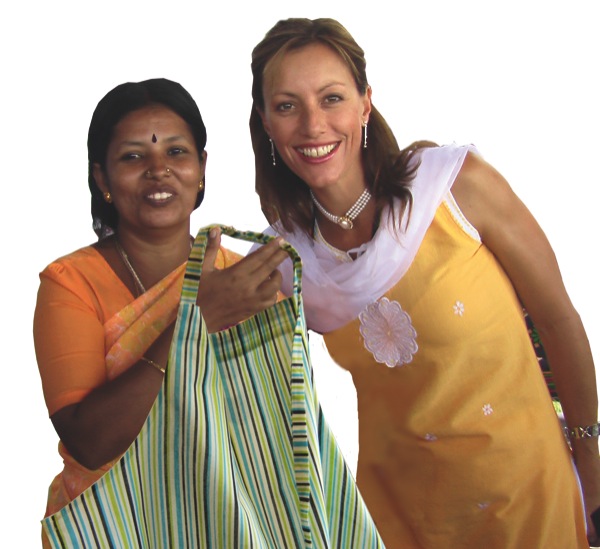It started with pyjamas. Bronwyn Darlington was hunting for a pair for her son, and she thought: “What if my consumer choice could aid those in need, by simply buying things that I need?” One simple thought has ballooned into a world-changing business endeavour, inspired by the belief that our choices as consumers should have a broad and positive global socio-economic impact within a minimal environmental footprint.
Rise Up designs and produces a range of ethical and sustainable products that contribute to improved living standards in developing countries.
When Darlington saw her friends buying Christmas presents while disregarding charity appeals, she had the idea of turning consumer dollars into charity dollars. But rather than forcing consumers to choose whether they will buy that new outfit or give to a charitable cause, Rise Up provides the opportunity to do both.
However, for Darlington, giving consumers the choice of purchasing Fairtrade items is not enough. She believes consumers need to actively change their habits in order to create tangible benefits to those in developing countries and she emphasises the specific role of not-for-profits (NFPs) in this process.
“By simply making an industry choice to match our social and charitable values with what we buy, so many poor and disadvantaged [people] could really be helped,” says Darlington.
“The reality is that pretty well every not-for-profit I know buys promotional products like t-shirts and they generally have no idea that the cotton they are using is poisoning poor farmers, and the cheap manufacturing they insist on is forcing poor garment makers to work terrible hours under pretty horrible conditions.”
Darlington says instead of NFPs spending money on cheap promotional items, they can start their charity work with the promotional items they buy and build from there.
“Eco-ethical promotional products send a much stronger message than anything you print on the front of them,” says Darlington.
Furthermore, although it may seem a more expensive choice in the short-term, buying Fairtrade certified products is more economically viable in the long run. As she observes, “If you keep people out of poverty and feeding themselves, you won’t have to bring them up from the bottom.”
Darlington hopes that charities will clue in to the reality and change duplicitous practices. “There is a much better way and when we do it together, we can do this at prices that meet budgets but also don’t hurt the very same people we are often trying to help.”
All Rise Up products are guaranteed by internationally recognised bodies including Fairtrade, and the Global Organic Textile Standard, so by purchasing Rise Up branded products, NFPs can be assured that their merchandise is ethical and sustainable. Most products are carbon neutral and those products made in Australia come with the No Sweatshop label.
While the majority of Rise Up products are produced overseas where it is cheaper, some are produced in Australia which, as Darlington says, “creates a smaller carbon footprint and supports our economy, striking a balance between the best
of both worlds.”
Using Fairtrade certified organic cotton is vital for the local communities who farm it. A lack of education in developing countries means that three million people are poisoned each year from pesticides.
Rise Up endeavours to have steps in place that allow independent assessment at every level of production, ensuring transparency throughout the supply chain. Darlington says transparency of supply is the biggest issue: “In China, lots of people are doing good things but you can’t verify it.”
There are some problems that can’t be solved by trade, and so Darlington supports charities that can, donating profits to charities like World Vision and the Fred Hollows Foundation. It is vital to strike the right balance: “If we can use trade and process to manufacture consumer goods we already buy, we can direct aid dollars better.”
Darlington believes that “NFPs need to switch their thinking, looking at their budgets to assess how many eco-ethical products they can buy, rather than buying more of a lesser-quality product. Using eco-ethical products sends a far stronger message than that printed on the item.”
Darlington hopes that the NFP sector will embrace this worthy cause, as demand grows for Rise Up products, especially Fairtrade tote bags, wool tote bags, t-shirts, and of course, pyjamas!
For more information email bronwyn.darlington@riseup.com.au, phone (02) 9698 8831 or visit www.riseup.com.au












